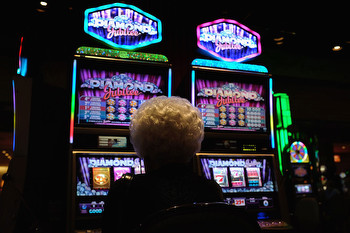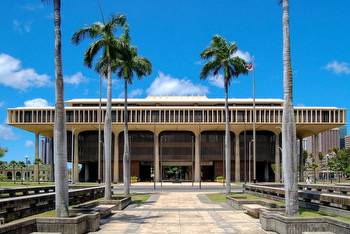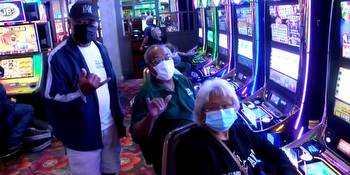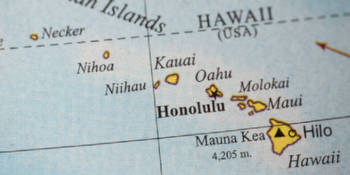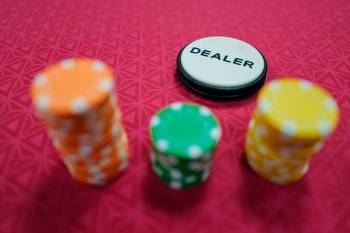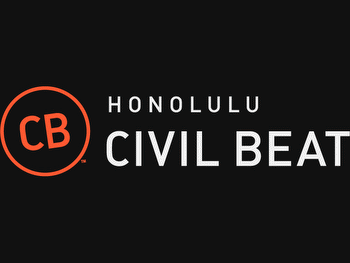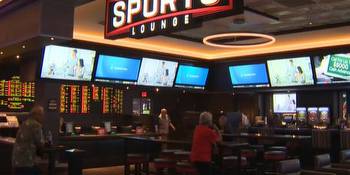Hawaii lawmakers bet on bill to legalize gambling

Instead of flocking to Las Vegas to get their gambling fix, local residents, including those in Maui County, could take a staycation to Oahu and pay a visit to a sportsbook and card room if some state lawmakers get their wish.
On Monday, Oahu state Rep. John Mizuno, along with advocates for gaming in Hawaii, announced the “sports gaming bill” to allow the first single, stand-alone sportsbook and card room on Oahu with a 10-year license.
While the brick-and-mortar gaming facility will be on the island with the largest population, Mizuno said via phone Monday afternoon that after that’s established, another brick-and-mortar could be opened on a neighbor island, although he did not specify where.
There will be no virtual participation linked to the Oahu gaming facility, as all gambling will take place physically on-site, Mizuno said. The card room would be just for one game, Texas Hold ’em, and there will be no slot machines, Mizuno said.
Many bills have been proposed in the past to allow gambling in Hawaii but all have failed. But if it comes to fruition, Hawaii could benefit financially, Mizuno said.
“With Hawaii residents dropping a billion dollars to Las Vegas, Nevada, every year, I think a sports and card gaming bill warrants at least a discussion,” Mizuno said in a news release Monday morning prior to a news conference on Oahu. “If crime is associated with gambling, why is gaming legal in forty-eight states and why are so many Hawaii residents going to Las Vegas, with many taking multiple trips?
“The people I know who enjoy trips to Las Vegas are mostly kupuna, not criminals. I feel it is important to discuss options to keep local money in the local economy.”
Mizuno pointed to a 2011 Civil Beat story that said that Boyd Gaming alone, which owns and operates local favorites such as the Fremont and Main Street Station hotel and casinos, reported it earns about $600 million from Hawaii visitors each year.
Mizuno’s announcement comes as the state Legislature is set to begin on Jan. 18.
While the bill may have drawn excitement for some, longtime Maui state Sen. Gil Keith-Agaran said that he’s introduced gaming bills in the past, but “they don’t get very far here.”
Mizuno, too, has also proposed similar gambling bills which have also failed.
Keith-Agaran, who is vice chairman of the Senate Ways and Means Committee, said the usual opposition is concern over the social impacts of gambling, and he believes there is opposition from the visitor industry, which does not see the gaming industry bringing in new money but rather taking away money spent on other things such as restaurants and sightseeing.
But the Maui legislator said the bill is worth discussing.
Maui state Rep. Kyle Yamashita, chairman of the House Finance Committee, could not be immediately reached for comment on Monday.
Prior to Mizuno’s announcement, Gov. Josh Green also weighed in on sports betting while at the Sentry Tournament of Champions in Kapalua on Thursday.
“As of now I’m going to first focus on housing and homelessness and health care, and maybe by year three I’ll give you a position on gambling,” Green told The Maui News at the golf tournament.
“I tend to be cautious about that because we are able to bring on adequate revenue straight through the tourism door rather through than the gaming door.”
Green acknowledged changes on the national level but also pointed to the unique aspects of Hawaii.
“I recognize that the world is changing and we are seeing big national movements so, I don’t think Hawaii should block national initiatives,” Green added. “But I do think we should be a little bit careful about gambling in Hawaii because we have remained unique in our focus on beauty and the kind of the purity of the sport here.”
But PGA Tour Commissioner Jay Monahan, also on Maui for the tournament, said on Sunday that he would like to see the state legalize sports gaming.
“Yeah, of course I would,” he said. “I think as a tour, with the presence that we have out here, and recognizing that over the last four or five years the steps that have been taken from an integrity standpoint, not just within the sport but also at large, I think that it’s really probably only a matter of time.”
Mizuno said the majority of funds raised by the gaming room would go to the state Department of Hawaiian Home Lands to get Native Hawaiians into housing and off the waiting list. Another smaller portion would go toward local law enforcement to deal with illegal game rooms in the state.
He said the idea is to keep the operation small at the beginning, such as one game room, so it would be easier to regulate. There are also hopes of establishing a gaming application that could be put in place only after the game room is established.
Mizuno said the purpose of launching the application later rather than sooner is to ensure the money spent in the application comes to the state and not an outside entity.
Oahu Rep. Daniel Holt, chairperson of the House Committee on Economic Development, said in the news release that he believes the legislation addresses concerns about social issues that may occur with gaming.
He said that customers would only be allowed to enter the sportsbook and card room after registering with the premises and paying a daily entry fee.
Mizuno said there would be limits on bets, such as $1,500 a day for the sportsbook. He added there will also be staff on the lookout for people who may show up at the room every day, for example.








